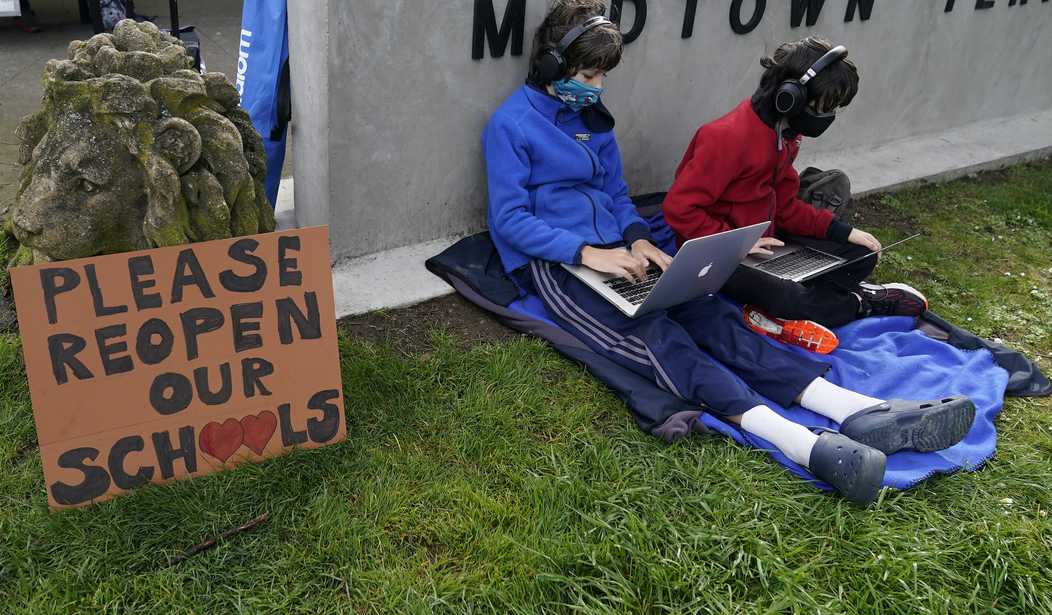Last week the CDC issued a warning about a mental health crisis among adolescents. Some of these trends were present before the arrival of COVID in 2020 but the pandemic seems to have accelerated them, especially among teenage girls.
The Centers for Disease Control and Prevention is warning of an accelerating mental health crisis among adolescents, with more than 4 in 10 teens reporting that they feel “persistently sad or hopeless,” and 1 in 5 saying they have contemplated suicide, according to the results of a survey published Thursday…
The findings draw on a survey of a nationally representative sample of 7,700 teens conducted in the first six months of 2021, when they were in the midst of their first full pandemic school year. They were questioned on a range of topics, including their mental health, alcohol and drug use, and whether they had encountered violence at home or at school. They were also asked about whether they had encountered racism…
Girls, too, reported faring worse than boys. They were twice as likely to report poor mental health. More than 1 in 4 girls reported that they had seriously contemplated attempting suicide during the pandemic, twice the rate of boys. They also reported higher rates of drinking and tobacco use than boys.
The statistics are one thing but earlier today Bari Weiss published a piece by her sister Suzi Weiss which really adds some color to the numbers. It’s titled “The Teen Girls Aren’t Going to Forget.”
Before the pandemic, [Serena] Volk was a cheerleader. She’d been cheering since second grade, but she quit at the end of her sophomore year, when the cheering team stopped traveling to compete because of Covid. “There was no pride in winning,” she said. “I started to hate going to practice.” It was the same with class, which became an ambient, digital, white noise machine—an iPad tuned into English, geometry, chemistry or American history, but with the camera off.
The tangibleness of high school—sweaty locker rooms, polyester prom dresses, the cool metal of a first-place trophy, the puff of a contraband cigarette—was gone. It no longer mattered how high schoolers dressed, or whether they dressed, or even whether they showered.
Volk described that time as “just so much emptiness.”
One of the themes that seems to crop up in the piece is teen girls who stopped eating when they lost touch with their normal, pre-COVID lives. Serena Volk noticed she could see her ribs after losing a lot of weight. But the piece ends with an even scarier story about a girl who developed an eating disorder in 2020.
Around Thanksgiving of that year, Adam rushed his daughter to the hospital. It was Sunday morning, and they called their doctor since she seemed like she was about to pass out. He told them that if they didn’t get her to a hospital soon, her heart might stop.
When they got there, they learned she was 74.6 pounds. “I’ll never forget that number as long as I live,” he said. They gave her a feeding tube, and she stabilized after a week…
Adam says, “I say to my wife all the time, ‘What have we done to our kids?’”
As the article points out, COVID isn’t the first major disruption that young people have faced. We’ve had two World Wars, depressions, recessions and kids have been forced to deal with whatever bad hand they are dealt. But those other disruptions either forced teens out of the house and on into their own lives or at least forced them to find solace with other people their age who were facing the same problems.
The pandemic was different because kids were basically stuck at home, unable to move on from dependency on their parents and unable to socialize with their peers facing the same struggles. One girl quoted in the story says she returned to high school as a senior but felt like an imposter. She hadn’t really had a high school experience since freshman year. It had been shut down. Those decisions are going to have repercussions that are going to be with us for a while. No wonder so many voters are eager to take more control of their kids’ schools.








Join the conversation as a VIP Member